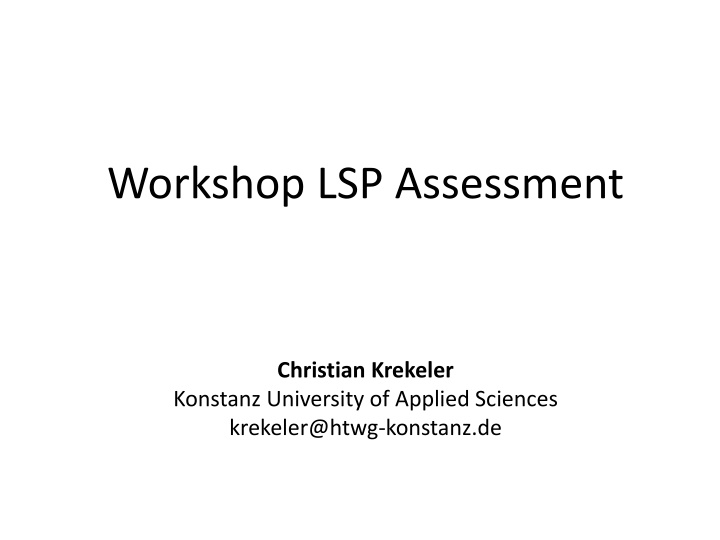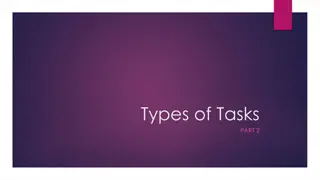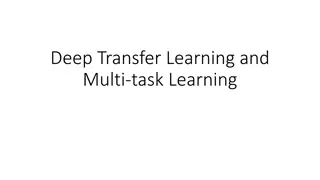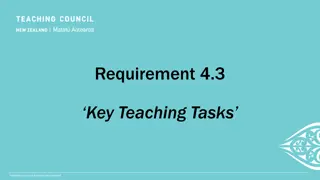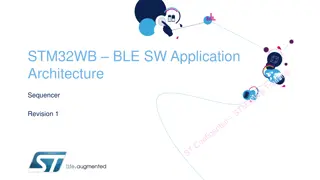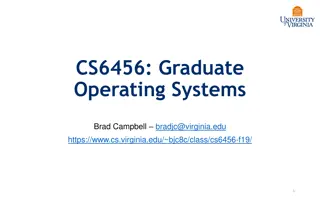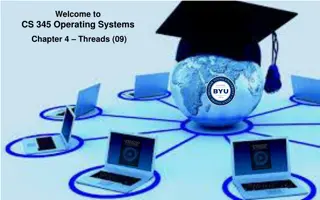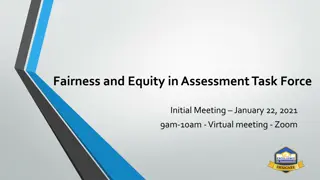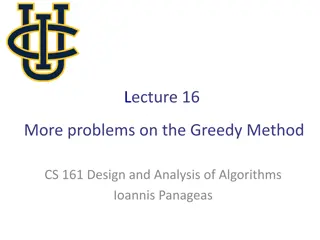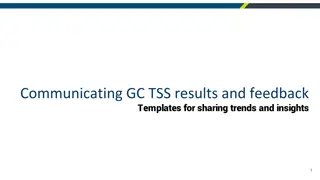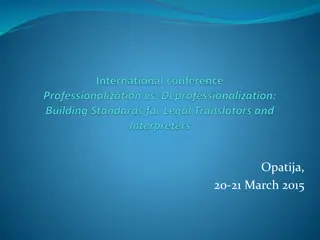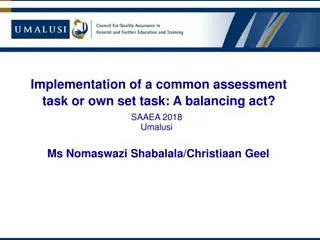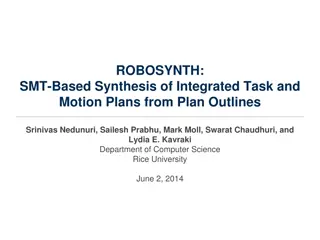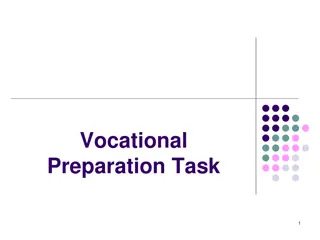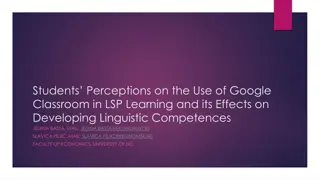Task-Based Language Assessment: Adapting LSP Tasks for Assessment Purposes
Explore the integration of Task-Based Language Assessment (TBLA) with Language for Specific Purposes (LSP) tasks to enhance assessment purposes in educational settings. Discover the complexity, authenticity, and cognitive demands of adapting tasks, aiming for communicative outcomes in a real-world context.
Download Presentation

Please find below an Image/Link to download the presentation.
The content on the website is provided AS IS for your information and personal use only. It may not be sold, licensed, or shared on other websites without obtaining consent from the author.If you encounter any issues during the download, it is possible that the publisher has removed the file from their server.
You are allowed to download the files provided on this website for personal or commercial use, subject to the condition that they are used lawfully. All files are the property of their respective owners.
The content on the website is provided AS IS for your information and personal use only. It may not be sold, licensed, or shared on other websites without obtaining consent from the author.
E N D
Presentation Transcript
Workshop LSP Assessment Christian Krekeler Konstanz University of Applied Sciences krekeler@htwg-konstanz.de
1 LSP TASKS FOR TEACHING LSP TASKS FOR ASSESSMENT
LSP teaching, LSP tasks Task Renewable energy supply: Make a video of a news item on a catastrophe/problem with a source of renewable energy (water, wind, solar). Work in groups of three or four students.
LSP teaching, LSP tasks Meaning Focus on a communicative goal Complexity Complex tasks Authenticity Real-world relationship Cognition Congintively demanding tasks Skehan 1998; Ellis 2003; Van den Branden 2006
LSP teaching, LSP tasks Task Content - Renewable energy - Types - Applications - Efficiency - Language - Presenting - Pronunciation - Genre - Terminology - Structures
LSP tasks and language assessment Task Renewable energy supply gone wrong: Make a short video of a news item on a catastrophe/problem with a source of renewable energy (water, wind, solar). Work in groups of three or four students. Why is this a problematic task for assessment purposes?
2 TASK DESIGN: ADAPTING LSP TASKS TO ASSESSMENT PURPOSES
TBLT and Assessment LSP TBLT LSP Assessment Complexity Meaning mismatch Authenticity Cognition
Task-based language assessment TBLA is a direct performance assessment which uses authentic, complex and cognitively demanding tasks. Such "holistic" assessments are scored with regard to the desired communicative outcome of the task. Ellis 2003; Wigglesworth 2008
TBLT and Assessment LSP TBLT LSP Assessment Complexity Complexity Meaning Meaning Authenticity Authenticity Cognition Cognition
LSP tasks and language assessment Content and Language Task Difficulty Tensions Generalizability Scoring
LSP tasks and language assessment Assessment Task Renewable energy gone wrong: Make a short video of a news item on a catastrophe/problem with a source of renewable energy (water, wind, solar). Work in groups of three or four students. Alter/replace this task to make it more suitable for assessment purposes.
LSP tasks and language assessment Alter/replace this task to make it more suitable for assessment purposes. compare results describe competences reduce complexity control input
LSP tasks and language assessment Assessment Task The dam of a large reservoir used for hydroelectricity is leaking. Write and read a news item on the possible reasons, the efforts of the engineers to stop the leakage and the design of the reservoir. Input: Use the chart "Hydroelectric dam". Language Time
3 SCORING LSP TASKS
Scoring TBLA Focus on meaning and a communicative goal quantitative scoring general impression scoring global/holistic scoring systematic/analytic scoring
Quantitative scoring Counting errors Error ratios objective, safe not suitable for scoring complex LSP tasks
General Impression Scoring No fixed criteria unsystematic, difficult to legitimize improve accuracy by comparisons flexible, open mind
Global/holistic scoring Systematic/analytic scoring Rating scales Rating scale with global descriptors Global score for performance Rating scales Sub-scales for different features Separate scores Weighted overall score
Rating scale development Write descriptors for a rating scale for the task on the reservoir dam.
Rating scale development Specific descriptors not: Can understand the main ideas of complex text on both concrete and abstract topics, including technical discussions in his/her field of specialisation. Can interact with a degree of fluency and spontaneity that makes regular interaction with native speakers quite possible without strain for either party. [ ] CEFR
Rating scale development a priori method rating scale developed by experts "armchair approach" a posteriori method descriptors derived from observations of performance behavioural rating scales theory-derived rating scales Taylor 2011
Rating scale development Write descriptors for a rating scale for the task on the reservoir dam. - specific, based on task - observable Would you use your descriptors for global/holistic scoring or systematic/analytic scoring?
LSP Assessment 1 TASKS AND ASSESSMENT 2 TASK DESIGN 3 SCORING LSP TASKS
